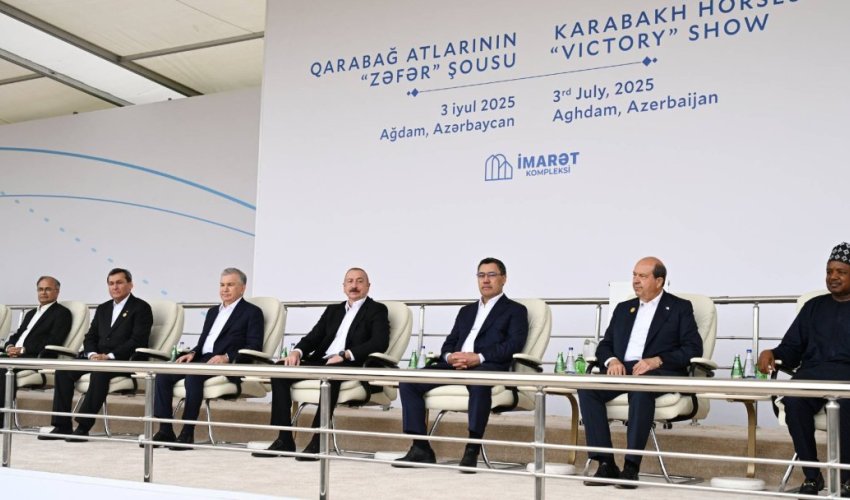Caspian states emerge as new growth engine

The summit of the Economic Cooperation Organization (ECO) held in Khankendi was more than a diplomatic gathering — it marked a key turning point in shaping the region’s future geo-economic map.
ECO, one of the oldest informal integration platforms across Western and Central Asia, reaffirmed its strategic importance in the region’s shifting power dynamics.
Caspian states emerge as new growth engine
Held alongside the summit, the 6th ECO Business Forum in Shusha brought together over 200 participants and spotlighted development prospects in the Caspian basin. Most major infrastructure projects under ECO are now focused around this region, with Azerbaijan, Kazakhstan, and Uzbekistan taking the lead.
The three countries signed a joint agreement establishing the "Green Corridor Union" company, initiating a “Green Energy Corridor” from Central Asia to Azerbaijan. The project aims to export renewable energy and create a resilient regional energy network.
Feasibility of Trans-Caspian corridor and global energy shift
In parallel, the Asian Development Bank launched a tender for a feasibility study of the Trans-Caspian energy corridor, with the winner to be announced in autumn 2026 — a step seen as critical to launching construction.
By 2030, the corridor is expected to connect renewable energy networks around the Caspian and deliver electricity to the EU via an undersea cable through the Black Sea. This would cement Azerbaijan and Kazakhstan not only as fossil fuel suppliers but also as key green energy exporters to Europe.
Amid the global energy transition, natural gas’s share in EU power generation dropped from 18% in 2023 to 15% in 2024. In the U.S., battery storage capacity surged from 1.5 GW in 2020 to 24 GW in 2024. Saudi Arabia aims to raise renewables to 50% of power generation by 2030. China’s green energy investment rose from $166 billion in 2021 to $345 billion in 2024, accounting for 45% of global clean energy investment.
Baku and Tashkent launch shipbuilding partnership
Uzbekistan and Azerbaijan held a high-level intergovernmental meeting during the summit and signed a protocol on maritime cooperation and shipbuilding. The countries agreed to jointly invest $150 million in ferry production.
The deal is part of a broader strategy to expand transport routes and intensify multimodal logistics along the Uzbekistan–Kazakhstan–Azerbaijan and Uzbekistan–Turkmenistan–Azerbaijan corridors in 2025–2026.
New trade arteries and Pakistan investment deal
Plans are also underway to establish free economic zones, logistics hubs, and agro-industrial clusters along the Trans-Caspian route stretching from Uzbekistan’s industrial zones to ports in Turkmenistan and Kazakhstan, with access through Azerbaijan to Georgia and Turkey. Iran is expected to join this integration initiative in the future.
A major development was the signing of a preliminary $2 billion investment agreement between Azerbaijan and Pakistan. A broader version is expected during President Ilham Aliyev’s planned visit to Islamabad.
This could become Azerbaijan’s largest foreign investment package beyond the Caucasus and Turkey in the past decade.
ECO expands trade footprint
Azerbaijan’s trade turnover with ECO member states currently stands at around $8 billion, roughly 17% of its total foreign trade. In the first five months of 2025, trade volume reached $3.5 billion — up 10% from the same period in 2024.
The Khankendi summit signaled a new phase for ECO as a central platform for regional stability, energy security, and economic integration.
N.Tebrizli




































 Photo
Photo 



 Video
Video 

